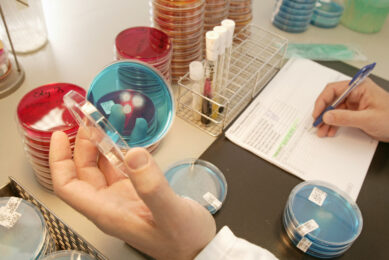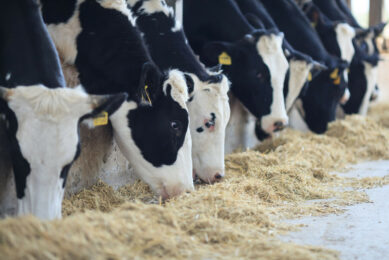No antibiotics: Back to the Middle Ages
The rise of bacterial resistance is threatening because hardly any new antibiotic is being developed nowadays. The era of infectious diseases is behind us and no further efforts in tracing new bactericidal drugs are being made.
However, bacteria are able to take all hurdles that human science have put up to stop them. With these bacterial skills we might return to the dark era of the Middle Ages, when people that were infected by bacteria, could only pray for survival.
Therefore, the (mis)use of antibiotics is on the agenda of many politicians and industry officials. In the US the animal production industry is struggling to counteract activists’ accusations of overuse of antibiotics and resistance of bugs to drugs used in animal production. In Europe, where antibiotic use for growth enhancing purposes has been banned since 2006, the curative use of drugs has almost doubled. And as a result resistant bacteria emerge. In the Netherlands, where annually 500-600 tonnes of antibiotics are used in animal production, the ministers of Agriculture and Human Health have said that antibiotic use in animal production should be reduced by 50% in 2013. Reason for this being the rise of a new type of resistant bacteria.
After the already well know Multi Resistant Staph Aureus, (MRSA) now so-called Extended-Spectrum beta-lactamase (ESBLs) emerge. In 5% of the diagnosed blood poisonings among people E. coli bacteria are found that are ESBL-resistant. It is said that the injection of hatching eggs with the antibiotic Ceftiofur is causing the emergence of ESBLs. Dutch farmers, scientists and legislators are for years arguing whether this way of using the antibiotic should be banned, which is on the edge of the regulations set in the Animal Health Law.
In the US, where antibiotics are still in use as growth promoters, the discussion differs. The animal industry argues that there is no conclusive scientific evidence showing that the use of antibiotics on farms contributes significantly to an increase in antibiotic resistance in humans. There the industry is convinced that the responsible, professional use of drugs keeps animals healthy and enhances animal welfare while not contributing to resistance. Renouncing antibiotic drugs in animal production would have serious repercussions for animal health and preventing food borne diseases, US scientists say. It would also add significantly to the cost of production of animal protein. However, it is up to the consumer if he/she is willing to pray for recovery after being infected by resistant bacteria, or pay a little bit extra for antibiotic free meat.











